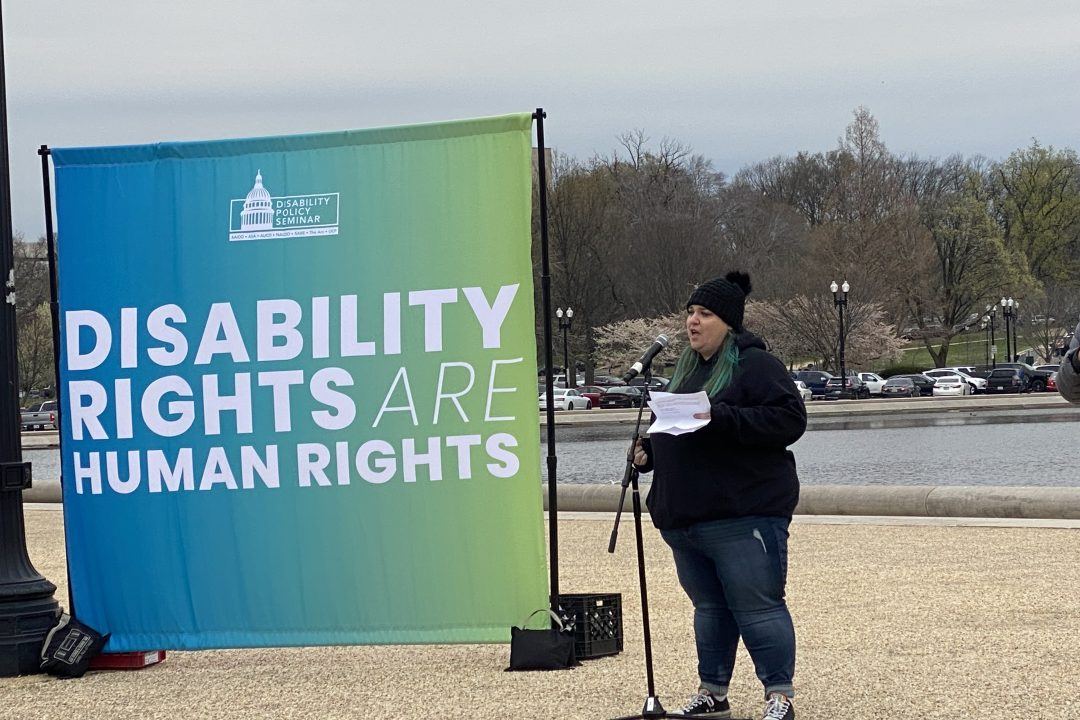Minnesota Lawmakers Made Progress for Disability Rights and the Autism Community in 2023

On the heels of some of the bigger headlines coming out of Minnesota’s 2023 legislative session are several lesser-reported yet historic gains for the autism community, including the elimination of parental fees for TEFRA and waiver services, education funding to reduce the special education cross-subsidy, and provisions to decrease exclusionary discipline practices. Multiple bills will improve the livelihoods of Personal Care Assistants (PCAs) – and the lives of autistic people served by PCAs. The session also saw historic progress from lawmakers in the ongoing work to eliminate subminimum wage in Minnesota.
Here is a summary on disability rights wins, and what may come next in policy advocacy for autistic Minnesotans:
TEFRA Parental Fee Elimination
The Tax Equity and Fiscal Responsibility Act (TEFRA) option for medical assistance allowed children with disabilities to qualify for medical assistance without considering the income and assets of parents. With this bill, parental fees no longer apply to those families. Before this bill passed, an unknown but likely large number of people chose not to engage this program because of prohibitive TEFRA fees. This bill also helps parents of children accessing home and community-based waiver services.
Improving Medical Assistance for Employed Persons with Disabilities (MA-EPD)
The asset limit for MA-EPD has been removed, and there’s a new requirement to notify people accessing MA of the existence of the MA-EPD program. MA-EPD premiums remain unchanged despite continuing efforts by disability advocates to lower premiums. Other proposed administrative changes to the program also failed to pass.
Phasing Out Subminimum Wage for People with Disabilities
The Task Force on Subminimum Wages – co-chaired by Jillian Nelson, AuSM’s Community Resource and Policy Advocate – made several funding recommendations for the Governor’s bill. Nearly all the Task Force’s recommendations passed – except for establishing an exact sunset date for subminimum wage in Minnesota, which advocates will continue to work toward next session. Not insignificantly, this bill establishes the major objectives recommended by the task force, including funding to track employment outcomes by reporting on people being paid subminimum wage.
Also, a Technical Assistance Center will be established to assist providers to transition away from subminimum wage employment. Lead agencies will get grants to build capacity in supporting people with competitive integrated employment options. Funding also will go toward training for case managers, and changes to the MnCHOICES assessment to ensure people are offered true, informed choices in employment and services.
PCA/CFSS (Community First Services and Supports) Rate Framework
This bill brings monumental wage and benefits increases for PCAs, as well an increase in provider reimbursement rates. Experienced PCAs can also qualify for additional wage increases. Paying PCAs a more competitive wage will help close the gap rate in homecare shortage, as many people with autism have had difficulty finding PCAs. The PCA profession was on the brink of being unsustainable due to low wages, but incremental increases phased over the next two years will help transform what was once considered a stopgap job into a career.
Budget increases were also passed for Consumer Directed Community Supports (CDCS) and Consumer Support Grants (CSG), going up 8.49% in 2024, with an additional 4.53% in 2025.
PCAs and caregivers will benefit from a new two-year contract with the state of Minnesota. The union-negotiated contract increases wages, benefits, access to training, and raises standards for all PCAs in PCA Choice, CDCS, and CSG.
PCAs Allowed to Drive Clients
This bill creates more independence for autistic adults who use PCAs, and gives PCAs paid time on the clock for transporting clients. Before this bill, PCAs literally would have to go off the clock to drive their client anywhere. This bill revisited and improved PCA Driving language that passed in 2021. Now, PCAs can drive clients as a billable service.
40-hour Cap Lifted to 60-80
Parents of minors and spouses who are federally approved for the CDCS and CFSS programs can now get paid to work additional hours as caregivers. Previously, there was a 40-hour limit split between two parents – now it’s a combined 80 hours for two parents, or 60 hours for a single parent. Spouses can now also work 60 hours as caregivers, up from 40 hours. This bill addresses homecare worker shortage, especially for people who leave other professions but still need a livable wage as a caregiver.
“This legislative session has brought hard-earned gains – it’s both encouraging and heartwarming to see legislative consensus in favor of our community,” said AuSM’s Jillian Nelson. “But as policy advocates, we still have so much work to do at the Capitol for our diverse community.”